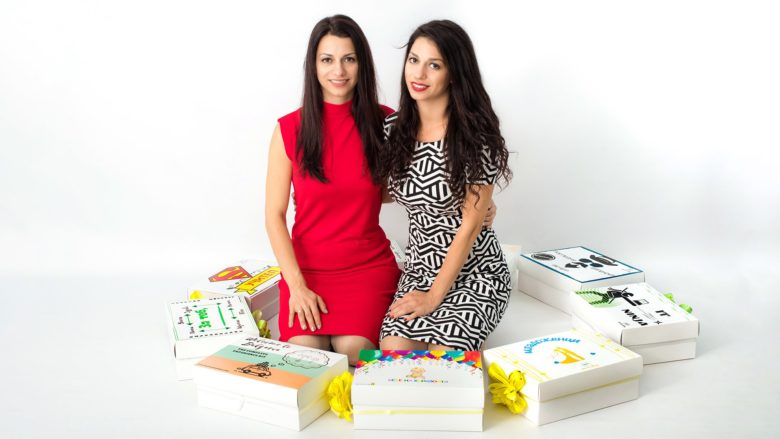Startups In Times of Crisis Vol.12: The Gifting Industry, Social Enterprise A Box To Remember And Its Pivot Towards Monthly Subscriptions

Which startups won’t make it and which will go out of the crisis as winners. Events industry, travel, leisure, real estate, hardware, are the hardest hit sectors. Yet does it apply to the startups in these industries? Do tech startups stand the chance of losing the game for not having the financial resources to sustain, or will make it because they are flexible and adaptable? We ask founders from the sectors that are in the very spotlight right now.
Have you wondered what’s going on with the gifting industry in the times of pandemic and social distancing when most of the celebrations are canceled and businesses are drastically cutting costs for corporate gifts? Probably, that hasn’t been a major concern as gifts don’t really fall into the prime necessities in such situations. And this is exactly what could cause major problems in the hundred billion gifting industry. Only in the UK for instance the annual spendings on gifts exceed £3.3B, and with the recent events the sector has seen a major shift towards digital and different gift cards. So what happens with physical gifts? The sector may need to pivot.
Here’s a concrete example. A Box to Remember is an online store for handcrafted gifts and gift boxes for different occasions like newborns, bachelors or bachelorette parties, weddings, graduation. The founded two years ago venture has a portfolio of over 10 different products that are sold online. The gift boxes, designed by the founders – sisters Diana Aladzhova and Polina Berg, are assembled by a team of people with dissabilites, turning Box To Remember a social enterprise, and sold both to end customers online, but also to companies that want to give a gift to employees and partners.
Since the start of the pandemic, Box To Remember has been in an unfavorable position: strongly affected by the supply chain slowdown as it relies on different materials to put together its product, also hit by the lack of physical events and celebrations. Not least, being a social enterprise, it falls into a category that has no access to crisis measures and financial aid. And yet, the two co-founders have found a solution. They reached out to us to tell us how they are tackling the situation and we found the approach quite inspiring: an example of the transition from crisis mode to entrepreneurial mindset.
Trending Topics: How is the current situation affecting the business of A Box To Remember? What does it mean for your b2b and b2c sales?
Diana Aladzhova: Currently, we all live under conditions that were unthinkable three months ago. Over less than two weeks we experienced shocks in the supply chains and severe reduction in customer demand. The situation escalated so quickly that very few businesses were able to prepare for this new reality.
Box to Remember was among the businesses immediately hit by the current situation. In a matter of weeks we experienced 60% slowdown in orders. The large part of our product portfolio encompasses gifts for weddings, bachelor and bachelorette parties, graduation parties, gifts for newborn babies, but also birthday gifts, etc. All of those celebrations were canceled, so naturally, gifts were not part of the equation in people’s budgets. In addition, lower customer demand and trends towards increased savings are expected to affect the B2C channel of our business in the future.
As to B2B, large corporate clients faced liquidity problems and had to update their budgets to reflect revenue declines in their own businesses. As expected, the gifts for employees and partners were among the first expenses cut in these times of crisis.
Generally, the gift industry is cyclical and experiences strong seasonality. Worldwide, it is expected that the gifts market will follow a downward trend over the coming years, due to the social distancing policies and the market slowdown.
What was your first response to the situation?
Polina Berg: Initially, like many other businesses we decided to wait and track the effects of the situation. However, after the first 2 weeks there was already sufficient information to update the forecasts. And they revealed that we had 4 months before we start operating at a loss. So, we had to take action quickly.
Have you pivoted? Are there any new products and services that emerged as a result of the current situation?
Polina Berg: We had to choose – adapt or give up? For us Box to Remember is not just a business venture. It is a social enterprise that we have started from scratch, putting a lot of energy, love, and passion into it. We didn’t want to give up on our team, 10 young people from the deaf community and with motor problems, nor on our clients and partners. We wanted to improve and adapt.
We wanted to combine 1) our current knowledge of the market, 2) our production capabilities and 3) our target customers’ needs into one new product line that fits the new trends, does not exist in Bulgaria and simultaneously could give us potential for recurring revenues to allow us to manage the slowdown in the other products. The task was challenging to say the least.
What emerged from this process, was the first baby and toddler subscription box in Bulgaria – Bebeznaiko. A large part of our customers, so are we, are parents of toddlers.
The lockdown inspired us to look for alternative options for educational and fun activities for babies and toddlers. We searched for toys, books, and play-kits, and we found a lot, but by investing hours of our time to research and test age-appropriate, developmental learning materials, and the price for this was not only time-wise but also money-wise.
We wanted a long-term solution for our toddlers and for us as parents. We also looked for a reasonable price. As customers we didn’t find what we were looking for, so we created it. This is how we came up with Bebeznaiko – a monthly subscription box with games, learning by doing kits, and short educational materials for parents on child development. The games are hand-made by Bulgarian craftsmen, not imported from abroad. This is our way to try and support both our business with social cause and small Bulgarian workshops.
With the new subscription boxes we aspire to provide parents with easy-to-use and fun tools for child development and at the same time empower our team and create stable business fundamentals to respond to the crisis.
Why is the current situation especially challenging for social enterprises?
Diana Aladzhova: Social enterprises are among the businesses hardly hit by the crisis for three reasons. First, many rely on donations to support monthly operations and in testing times such as these, donations are very limited. Second, most often founders of social enterprises are human-oriented people, who are very focused on the social cause and are slow to adapt to rapid changes in the business environment. Third, there is very scarce governmental support for social enterprises, and most of them do not qualify for grants or financial instruments for SMEs.
Basically, all of us rely on the support of the public. We hope that customers will give a chance to Bulgarian social businesses, next time when they are about to choose a product or service.
How long do you think will A Box To Remember be experiencing the effects of the pandemic and the following economic crisis?
Diana Aladzhova: This is a hard question to answer. To be honest, we are preparing for a minimum of 1.5 years. However, research suggests that after slowdowns in the size of the current one, the economy needs an average of 4 years to recover. And as I said, the gift industry is cyclical, so there is positive correlation between the two.
How your plans for 2020 have changed?
Diana Aladzhova: In 2019 we prepared a 3-year strategy for expansion on the markets in the UK and Germany. We had our partners there and product portfolio to start. Unfortunately, this will need to wait for better times.
What is the most valuable lesson you, as an entrepreneur, learned from this situation?
Diana Alazhova: Sometimes the difficulties ahead of us could present a blessing in disguise. It could be that the worst comes for the best, but it depends on us to find our own best. In Box to Remember we try to do that with all our hearts. Time will show whether we did it right. In any case, we are grateful to everybody who will find the time to check our new products and support us!
This may also interest you:
Vol. 3: Events Industry And Evedo’s Pivot
Vol. 4: Airlines Industry and Traveltech startup Colibra’s new financial product




























